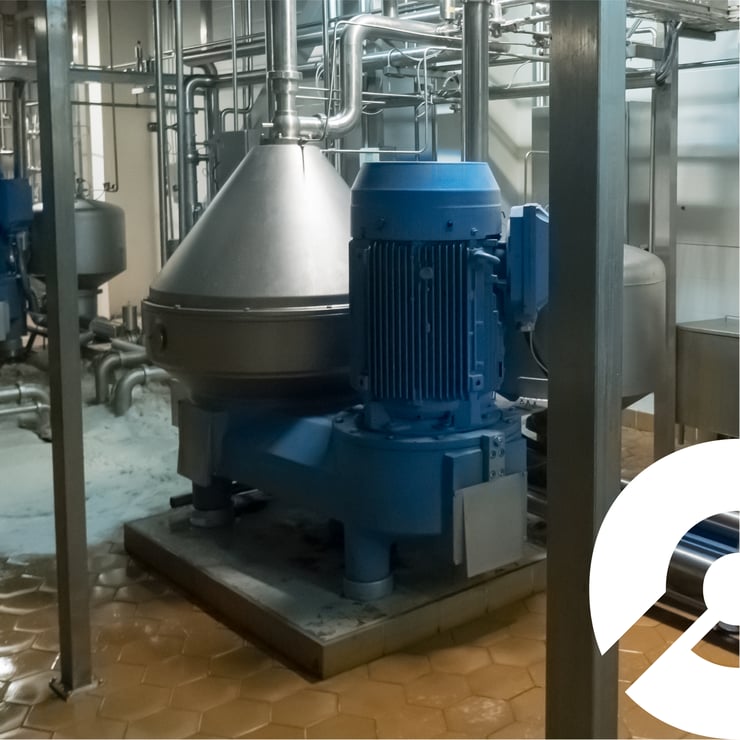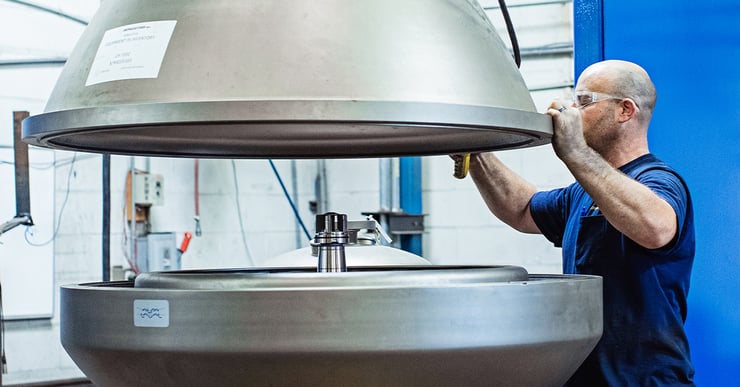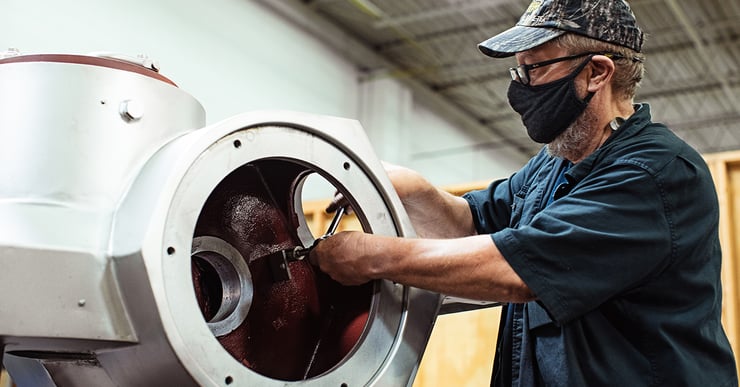All too often, issues with a centrifuge’s separation process aren’t related to the centrifuge itself. Instead, the culprit is often found within other areas of the production line.
When it comes to troubleshooting and diagnosing a process problem, many technicians look to the centrifuge first — but this is a common mistake, as it’s not the most efficient or effective way to go about fixing your problem.
Restore optimal functionality to your production line
When it comes to assessing and diagnosing a process problem, most technicians will tamper with equipment settings to get production flow back to “normal.” For example, a technician might make the choice to feed the separator less (not knowing that the heat exchanger is clogged). In our experience with centrifugal separators, we’ve found it’s best to check areas outside the machine before pressing any buttons.
Remember, separators operate with a flow going to the machine, and that flow relies on numerous functions including back pressure, operating water pressure, air pressure, and valves. All of these functions impact your separation process, and if one isn’t functioning properly, your separation process is not fully optimized.
Luckily, these components can be assessed without having to tear the machine down.
Reduce downtime with centrifuge service
As you know, taking apart a separator and taking down the bowl halts production for hours. But assessing outside components (e.g., water pressure, air pressure, valves) requires a fraction of that time. And more often than not, the issue causing a centrifuge to underperform is outside the machine.

However, in most cases, centrifuge service technicians aren’t trained to take a look at these areas first (and might not even be sure what to look for). There’s where Separators comes in.
Invest in training for your technicians
Let’s start with an example of a common plant process problem: An overnight technician runs into an issue that is slowing the volume of product coming down the production line. So they press some buttons on the centrifuge and the problem resolves itself. This is a quick fix that keeps the plant functional in the moment, but it will undoubtedly lead to greater problems with time. Even worse, the changes might not be documented or communicated to the technician for the next shift, meaning the workaround gets lost in the shuffle.
We understand the importance of your production volume. That’s why we believe it’s so important to train technicians to properly diagnose an issue to keep your plant up and running without unexpected downtime. After all, you can’t hit production volume goals if your production line is down due to a malfunctioning piece of equipment.
Of course, it can be difficult to train technicians on every machine in your production line — but it’s an important step to saving time and money. And the truth is, your technicians don’t need to know every machine inside and out; they just need to know the basics (and be able to identify when the issue is beyond their skillset and requires an outside technician).
Get our technical service group involved
When a centrifugal separator is plumbed incorrectly, often a standard technician isn’t able to solve the issue. Our Technical Service Group at Separators is a group of expert-level technicians who know centrifuges (and their surrounding components) like the backs of their hands.

In addition to the parts that make up your equipment, our team understands the process of every application and the possible layouts of a separation system. They can assess whether separation equipment is installed correctly and adequately plumbed. Even more than that, they can repair these issues, too. (And provide guidance to your on-site technicians as they work through the repair.)
Instead of getting caught up in equipment issues and finger pointing, it’s well worth your while to work with someone who’s capable of handling the whole works: assessing, troubleshooting, diagnosing, and resolving. This way, you can reduce downtime and resume production on a much tighter timeline.

